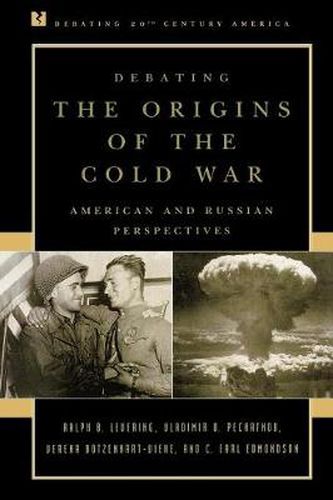Readings Newsletter
Become a Readings Member to make your shopping experience even easier.
Sign in or sign up for free!
You’re not far away from qualifying for FREE standard shipping within Australia
You’ve qualified for FREE standard shipping within Australia
The cart is loading…






This text examines the coming of the Cold War through Americans’ and Russians’ contrasting perspectives and actions. In two essays, the authors demonstrate that a huge gap existed between the democratic, capitalist and global vision of the post-World War II peace that most Americans believed in and the dictatorial, xenophobic and regional approach that characterized Soviet policies. The authors argue that repeated failures to find mutually acceptable solutions to concrete problems led to the rapid development of the Cold War and conclude that, given the respective concerns and perspectives of the time, both superpowers were largely justified in their course of action. Supplemented by primary sources, including documents detailing Soviet espionage in the United States during the 1930s and 1940s and correspondence between Premier Josef Stalin and Foreign Minister V.M. Molotov during postwar meetings, this book gives equal attention to the US and Soviet policies and perspectives.
$9.00 standard shipping within Australia
FREE standard shipping within Australia for orders over $100.00
Express & International shipping calculated at checkout
This text examines the coming of the Cold War through Americans’ and Russians’ contrasting perspectives and actions. In two essays, the authors demonstrate that a huge gap existed between the democratic, capitalist and global vision of the post-World War II peace that most Americans believed in and the dictatorial, xenophobic and regional approach that characterized Soviet policies. The authors argue that repeated failures to find mutually acceptable solutions to concrete problems led to the rapid development of the Cold War and conclude that, given the respective concerns and perspectives of the time, both superpowers were largely justified in their course of action. Supplemented by primary sources, including documents detailing Soviet espionage in the United States during the 1930s and 1940s and correspondence between Premier Josef Stalin and Foreign Minister V.M. Molotov during postwar meetings, this book gives equal attention to the US and Soviet policies and perspectives.